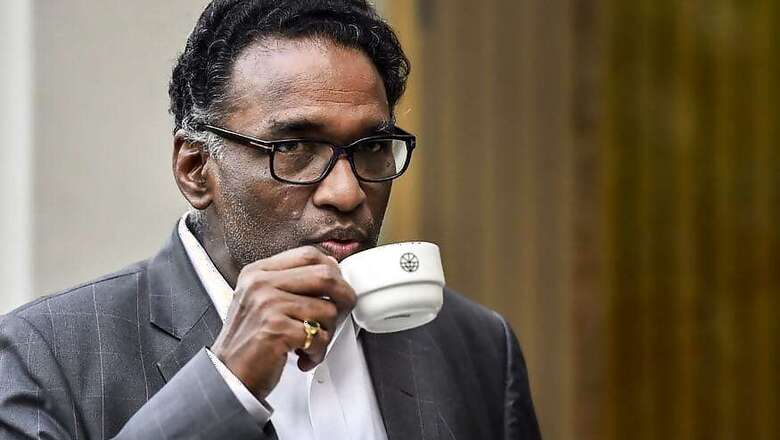
views
New Delhi: As the Centre and Supreme Court Collegium continue to lock horns over judges’ appointment, Justice Jasti Chelameswar, the second senior most Supreme Court judge said that appointments of high court judges to the apex court "happen on impressions rather than assessment".
"Records of what exactly goes on in Collegium meetings and what happens when some name is selected or rejected needs to be made available, so that it is more transparent. Assessment of a high court judge while elevation to SC is hardly done. It's usually based on impressions," said Justice Chelameswar, when asked about the ideal judicial appointment procedure.
Justice Chelameswar also hinted at a possibility of unofficial applications for judgeship in India. He was speaking at a book launch event on Monday.
Paul Craig, Professor of Law, University of Oxford, who was part of the panel, also supported a mix of intellectuals and judges for the panel appointing judges and voiced his reservations against the system of ‘judges appointing judges’.
Answering a question on the possibility of the court receiving applications from HC judges or other candidates for SC judgeship, Justice Chelameswar said, "You mean officially apply for it? World is going that way, why not India? It is possible."
Two days ago, Justice Chelameswar had created another stir by saying that if Justice Ranjan Gogoi is not elevated as the next CJI, the concerns that were voiced in the unprecedented judges’ press conference in January, would stand to be true.
Pondering over a host of other problems that plague the higher judiciary at the moment, he further pointed at the "sense of entitlement each state has for a seat in the apex court".
"Today the SC has a sanctioned strength of 31 judges. The moment you have a Supreme Court with 31 judges, every state would believe that they are entitled to a seat in the SC. Now, it is an unwritten norm for state-wise representation in the apex court," said Justice Chelameswar.
The judge also stated that the issue of transfer of high court chief justices deserves a relook.
"No political party wants to take a relook at it. The second judges’ case, which created the Collegium said that chief justices of high courts have legitimate expectations to be elevated to the SC. There is now more than one HC that has more than one chief justice," said Justice Chelameswar.
He also expressed his displeasure at the way the Supreme Court was hearing bail applications.
"I am not sure great thinkers would have thought that this court would hear bail applications. If this court was only for Constitutional problems, then 31 judges would not be required. I am not trying to retrench anyone at the fag end of my tenure," said the judge who was the lone dissenting voice in the NJAC verdict, which struck down NJAC and ushered in the Collegium system.
Justice Chelameswar also stated that the Collegium has taken certain steps to bring transparency into the system, something that had never happened in the past 25 years.
"The Collegium now has a session of interaction with the judge whose name is under consideration," said the judge who is a part of the Collegium.
These comments come after Union Law Minister Ravi Shankar Prasad wrote a strongly-worded letter to CJI Dipak Misra, asserting that the Collegium's recommendation should be put in abeyance until a "fair" inquiry is conducted into the sexual harassment complaint by a lady officer against the district judge, whose name has been proposed for elevation to the Karnataka High Court.














Comments
0 comment